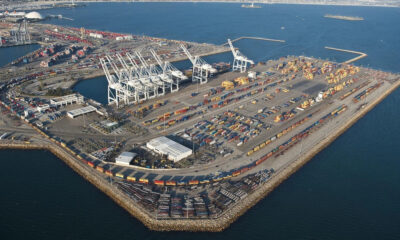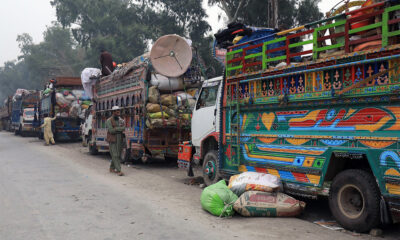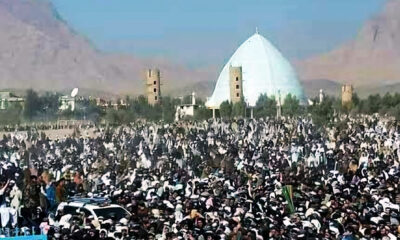Climate Change
COP28: Climate change causing havoc for India
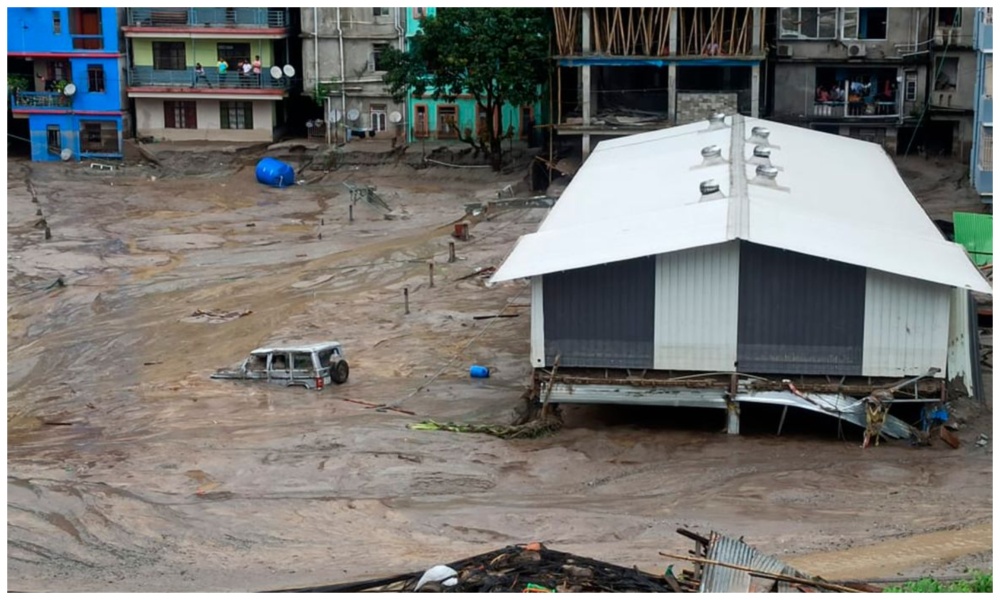
Worsening climate change made the 2011-2020 decade wetter and warmer for India, according to a new report released by the World Meteorological Organisation (WMO) at the UN climate conference on Tuesday.
The report stated that the rate of climate change surged alarmingly during the period, which was the warmest decade on record, Press Trust of India reported.
The provisional annual report for 2023, released at COP28 last week, said 2023 is set to be the warmest year on record.
The WMO, a specialized agency of the United Nations that covers weather, climate and water resources, said it was a “wet decade” over northwest India, Pakistan, China and the southern coast of the Arabian Peninsula, PTI reported.
The occurrence of extreme warm days in the 2011-2020 period was approximately twice the 1961-1990 average in parts of southeast Asia, most of Europe, southern Africa, Mexico and parts of eastern Australia.
Extreme cold has become less frequent with warming global temperatures: extreme cold days and nights in the 2011-2020 period were about 40 per cent below the 1961-1990 average, it said.
Kerala was badly affected by floods in 2018, and in 2019 and 2020, India’s two wettest monsoon seasons in the previous 25 years saw intense and widespread flooding, PTI reported. Over 2,000 flood-related deaths were reported in India and neighboring countries.
Droughts during the 2011-2020 decade had major socioeconomic and humanitarian impacts. In India itself, drought was declared in 11 of its 28 states, leading to severe food and water insecurity; the situation was exacerbated by inequalities in water availability and access to its supply.
World over, glaciers thinned by around 1 meter per year with long-term repercussions for water supplies for many millions of people, the WMO report said The Antarctic continental ice sheet lost nearly 75 per cent more ice between 2011-2020 than it did in 2001-2010 and the resulting sea level rise will jeopardize the existence of low-lying coastal regions and states in the future, it said.
“Each decade since the 1990s has been warmer than the previous one and we see no immediate sign of this trend reversing. More countries reported record high temperatures than in any other decade,” said WMO Secretary-General Petteri Taalas.
He said the world’s oceans are warming faster and the rate of sea level rise has nearly doubled in less than a generation.
The world is losing the race to save the melting glaciers and ice sheets, which is unequivocally driven by greenhouse gas emissions from human activities, he said.
Weather and climate-related events were responsible for nearly 94 per cent of all disaster displacement recorded over the last decade and had a major impact on the progress of global efforts to end hunger, food insecurity, and malnutrition, PTI reported.
The WMO said climate change is “greatly” affecting the likelihood of many extreme events. Virtually every attribution study found that the likelihood of an extreme heat event increased significantly.
Heatwaves were responsible for the highest number of casualties, while tropical cyclones caused the most economic damage.
Climate Change
UN and ICRC warn of serious water shortage in Afghanistan
The International Committee of the Red Cross in Afghanistan reported that an estimated 33 million people in the country face severe water shortage
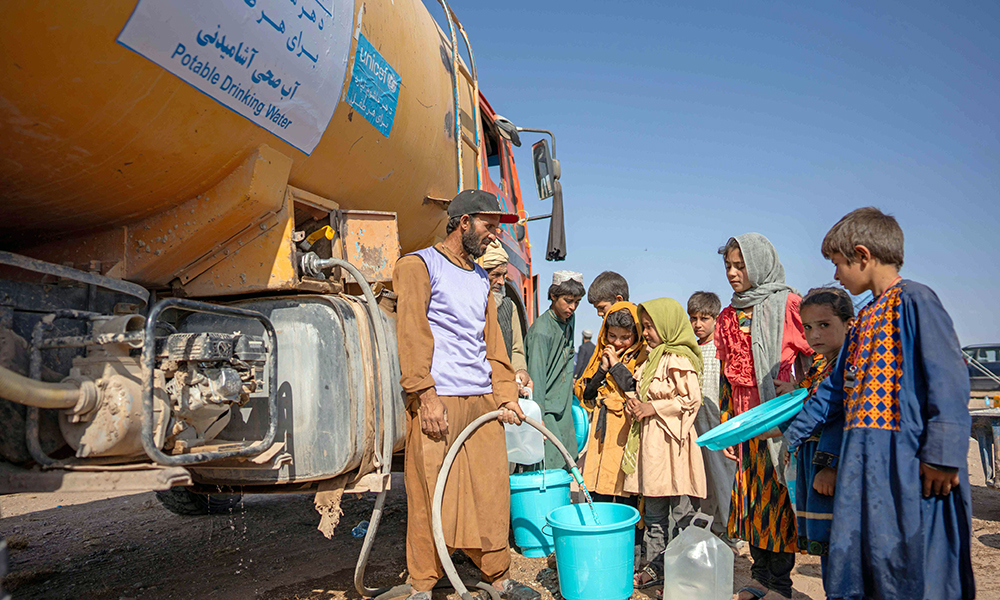
The United Nations Human Settlements Programme (UN Habitat) warned this week that 21 million people in Afghanistan are currently facing a serious water crisis and that the country needs major investments in water infrastructure.
Stephanie Loose, the head of the programme, said in a report that major Afghan cities such as Kabul, Kandahar and Herat are also facing a serious shortage of clean drinking water and that groundwater resources in these cities are decreasing significantly.
However, last week, the International Committee of the Red Cross (ICRC) in Afghanistan reported that an estimated 33 million people in the country face severe water shortage.
Marking World Water Day on March 22, the ICRC quoted a Kabul resident Shafiqullah Hamkar of District 5 in Kabul city as saying: “Our borewells have completely dried up because of the minimal snowfall and rainfall over the last few years.
“The sharp decline in groundwater levels has left us no choice but to rely on commercial water tankers for our most basic needs. It is a big challenge for us in the city,” he said.
ICRC said Hamkar represents an estimated 80% of Afghans who are dealing with the severe impact of erratic rainfall patterns, rising temperatures and droughts.
The situation is even worse in rural areas where people often rely on untreated surface water, which leads to the spread of waterborne diseases such as cholera and diarrhea.
“For millions of Afghans, who are already struggling with many challenges and facing a dire humanitarian situation, vital activities such as getting water to drink or cook and providing irrigation for crops are often impossible. This has a devastating impact on people’s health and access to food, and hampers the country’s potential for economic development,” says Martin De Boer, the head of programs for the International Committee of the Red Cross (ICRC) in Afghanistan.
He added that the lack of required infrastructure – including water-supply systems, dams and irrigation networks – further exacerbates the challenges. Responding to the needs of the people, the ICRC plays an important role in supporting communities and assisting authorities to improve and manage water supplies.
Climate Change
Over 500,000 Afghans displaced due to climate disasters in 2024: IOM

More than half a million people in Afghanistan were displaced due to climate disasters in 2024, the International Organization for Migration said in a country report published on Tuesday.
“Nearly 9 million individuals were impacted by climate hazards in the last 12 months, with over 500,000 displaced by floods, drought, and other disasters,” IOM said, AFP reported.
“Roughly three in five of those displaced relocated elsewhere within their province of origin”, with the western Herat and Farah provinces among the hardest hit, it said.
This week, 39 people were killed due to floods, hail and storms in southwestern Afghanistan, mainly in Farah, according to local authorities.
Afghanistan is among the poorest countries in the world after decades of war and is ranked the sixth most vulnerable to climate change, which is spurring extreme weather.
Drought, floods, land degradation and declining agricultural productivity are key threats, according to the United Nations.
Flash floods last May killed hundreds and swamped swaths of agricultural land in Afghanistan, where 80 percent of people depend on farming to survive.
“Over 11 million people in Afghanistan are at high risk of severe impacts from climate-induced disasters in the future,” the IOM said.
The UN agency estimates that “climate-sensitive livelihoods, like subsistence farming, make up 73 percent of jobs in Afghanistan”.
It added that “92 percent of villages have limited access to emergency services” and “96 percent lack resources for crucial measures like early warning systems and search and rescue.”
Climate Change
Floods in Farah and Kandahar claim the lives of 29 people

Officials from the disaster management departments of Farah and Kandahar report that floods in these two provinces have resulted in 29 fatalities and nine injuries.
Mohammad Israel Sayar, the head of disaster management in Farah, confirmed to Ariana News that 21 people lost their lives and six others were injured due to floods on Tuesday in the Qala-e-Kah district of the province.
According to Sayar, the victims had gone to the mountains of Qala-e-Kah for recreation purposes when floodwaters suddenly swept them away.
Officials from the disaster management department in Kandahar also stated that floods in the province have caused 11 deaths and injuries.
They reported that in the seventh district of the province, one woman and three children died when the roof of a house collapsed.
They added that in the fifth security district of the province, three women and one child lost their lives due to the floods. Two children and one man were also injured.
-

 World5 days ago
World5 days agoSecretive Chinese network tries to lure fired US federal workers, research shows
-

 Latest News4 days ago
Latest News4 days agoAfghanistan has the right to access Amu River’s water: Uzbek minister
-

 Climate Change5 days ago
Climate Change5 days agoUN and ICRC warn of serious water shortage in Afghanistan
-

 Latest News4 days ago
Latest News4 days agoAmnesty international urges Pakistan to halt Afghan deportations
-

 International Sports5 days ago
International Sports5 days agoIPL 2025: Punjab Kings secure thrilling 11-run win over Gujurat Titans
-
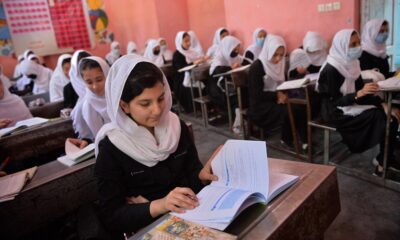
 Latest News4 days ago
Latest News4 days agoUN ‘deeply disappointed’ over ongoing ban on girls’ secondary education
-

 Latest News4 days ago
Latest News4 days agoAfghanistan-Iran-Europe railway corridor activated
-

 Business3 days ago
Business3 days agoAfghanistan ships first consignment to Europe via Khaf-Herat railway




